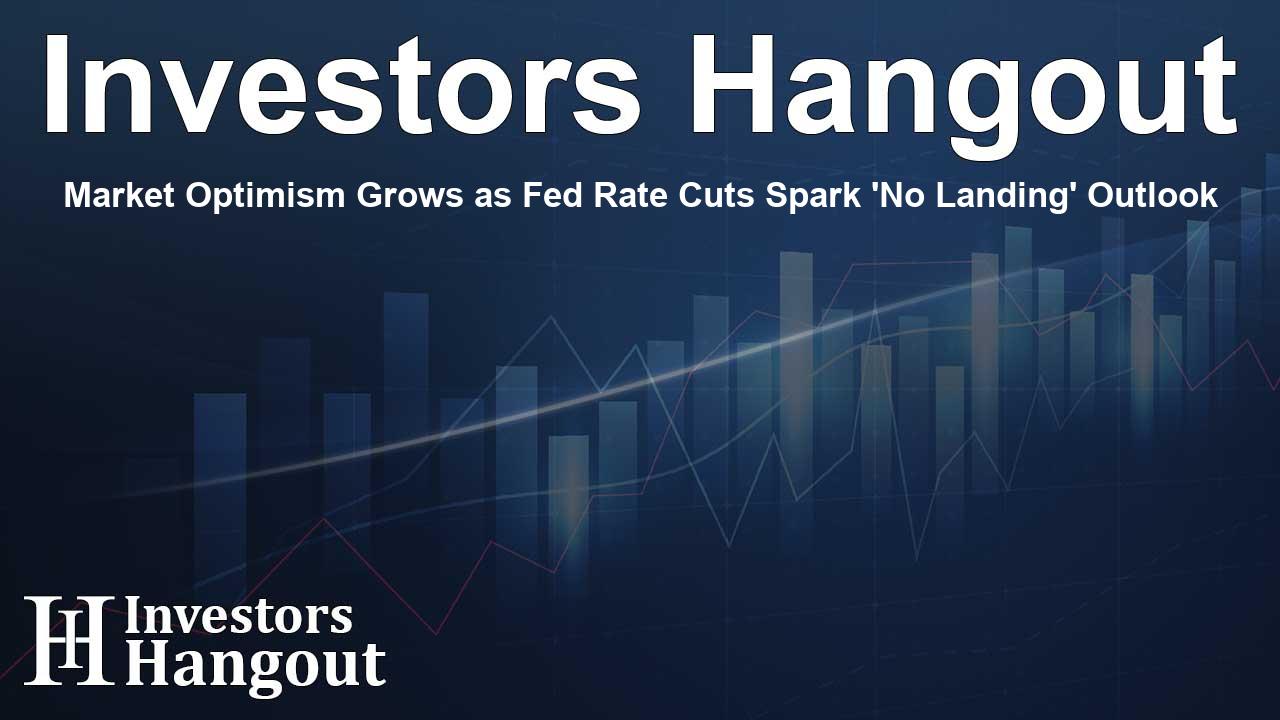Market Optimism Grows as Fed Rate Cuts Spark 'No Landing' Outlook

Understanding the 'No Landing' Scenario
The recent decision by the Federal Reserve to implement a significant 50 basis point rate cut has raised the possibility of a 'no landing' scenario for the economy. This concept suggests a situation where economic activity remains robust without the traditional signs of slowdown or recession. Investors are increasingly optimistic about this outlook, positively affecting market performance.
Impact of Inflation and Employment Data
The narrative surrounding a 'no landing' scenario has been amplified by rising inflation expectations, which are coupled with strong performance in cyclical stocks. Analysts point to the latest jobs report and consumer price index (CPI) data, which exceeded projections, as key indicators supporting this trend. These developments indicate a thriving labor market and robust consumer confidence, which are critical for sustained economic growth.
Insights from Bank of America
According to strategists from Bank of America, a 'no landing' prediction proves bullish for stock markets, provided that inflation remains in check. Their analysis suggests that in an environment where inflation is stable, there is a positive correlation between interest rates and stock performance. Specifically, when the Federal Reserve cuts rates amidst rising earnings per share (EPS), cyclical stocks are positioned to outperform defensive counterparts.
Shifts in Economic Outlook
Prior to the encouraging data from September, Bank of America had identified potential downside risks, noting slowed payroll growth averaging 116,000 new jobs monthly in the three months leading to August. Alongside this, hiring rates were diminishing, contributing to a somewhat pessimistic labor market sentiment.
Changing Perspectives on Recession Risks
However, recent economic revisions showing positive adjustments in Gross Domestic Product (GDP) and Gross Domestic Income (GDI) have prompted a shift in focus. The surpassing of payroll expectations further reinforces this adjustment, turning attention away from potential downturns toward the exciting possibilities for economic growth.
Bank of America strategists noted, “While we still view a soft landing as the most probable outcome for the economy, the balance of risks appears more even than it did previously.” Their current assessment suggests that recession risks remain low, and the fears of a 'no landing' outcome are equally mitigated.
The Road Ahead for Economic Expectations
Should incoming economic data continue to exceed market expectations, the prevailing narrative may gravitate towards a 'no landing' scenario. As this shift unfolds, it could significantly alter understandings surrounding the Federal Reserve's rate-cutting trajectory and foster continued positivity within financial markets.
Conclusion: A Cautious Optimism
In summary, the forecast painted by recent economic trends and central bank policies reflects a cautiously optimistic outlook. While challenges remain, the data suggests a resilience that has invigorated market confidence. As analysts and investors alike monitor economic indicators closely, the ‘no landing’ theory may redefine expectations moving forward.
Frequently Asked Questions
What does a 'no landing' scenario imply?
A 'no landing' scenario indicates a stable economic condition characterized by continuous growth without the onset of a recession.
How has the Federal Reserve's recent rate cut impacted stocks?
The recent rate cut has increased optimism regarding economic growth, influencing stock prices positively, particularly in cyclical sectors.
Why is inflation a concern for the 'no landing' outlook?
If inflation rises rapidly, it could undermine the potential benefits of lower interest rates and could lead to negative sentiment in the stock market.
What role do employment data play in economic forecasting?
Employment data provides insights into economic health, consumer spending, and overall market confidence, influencing investment strategies.
How can investors prepare for potential economic fluctuations?
Investors should stay informed about economic indicators, diversify their portfolios, and be ready to adjust strategies based on shifting data trends.
About The Author
Contact Hannah Lewis privately here. Or send an email with ATTN: Hannah Lewis as the subject to contact@investorshangout.com.
About Investors Hangout
Investors Hangout is a leading online stock forum for financial discussion and learning, offering a wide range of free tools and resources. It draws in traders of all levels, who exchange market knowledge, investigate trading tactics, and keep an eye on industry developments in real time. Featuring financial articles, stock message boards, quotes, charts, company profiles, and live news updates. Through cooperative learning and a wealth of informational resources, it helps users from novices creating their first portfolios to experts honing their techniques. Join Investors Hangout today: https://investorshangout.com/
The content of this article is based on factual, publicly available information and does not represent legal, financial, or investment advice. Investors Hangout does not offer financial advice, and the author is not a licensed financial advisor. Consult a qualified advisor before making any financial or investment decisions based on this article. This article should not be considered advice to purchase, sell, or hold any securities or other investments. If any of the material provided here is inaccurate, please contact us for corrections.
